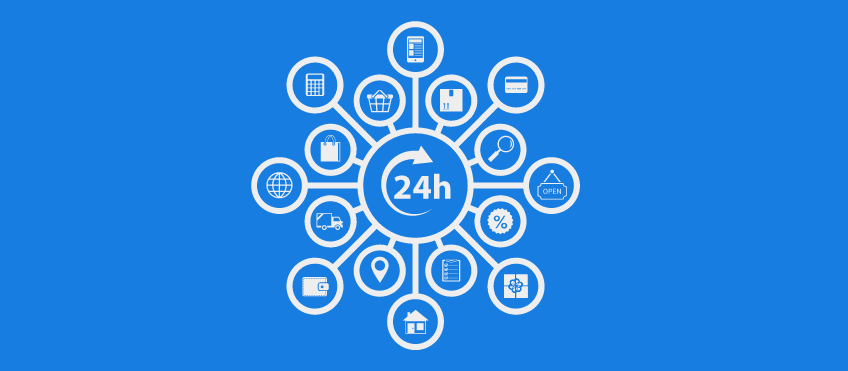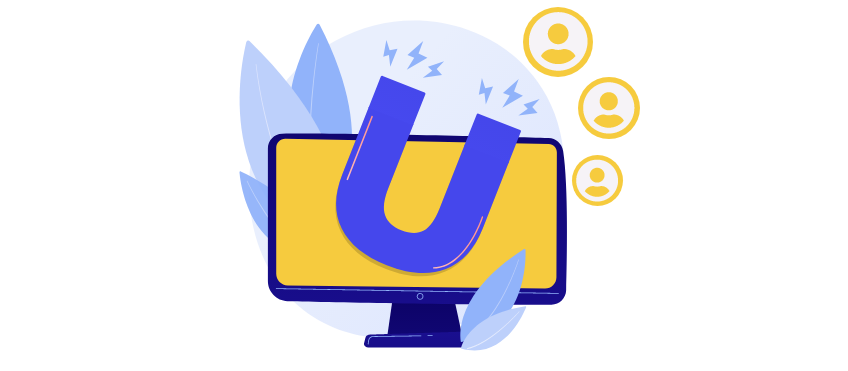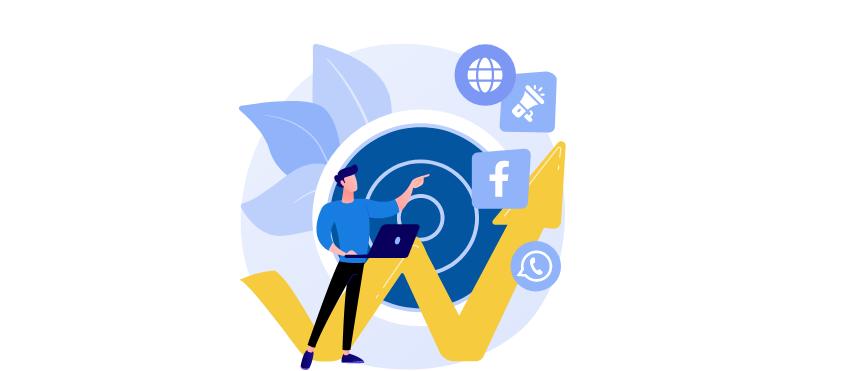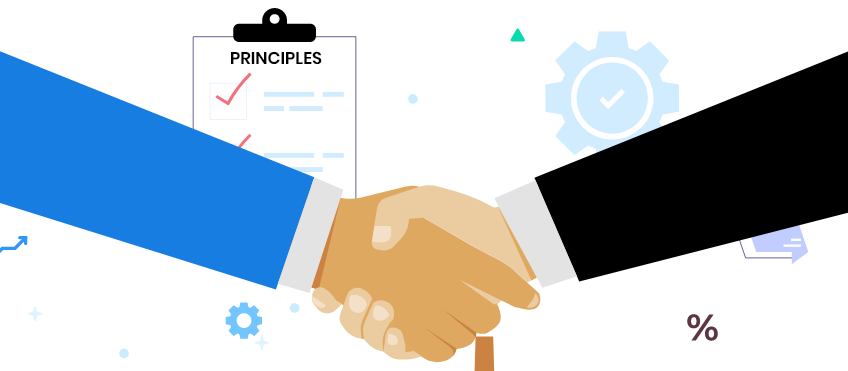The Comprehensive Guide to Setting Up a WhatsApp Business API Chatbot: A Tool to Elevate Customer Engagement and Augment Business Expansion

The Comprehensive Guide to Setting Up a WhatsApp Business API Chatbot: A Tool to Elevate Customer Engagement and Augment Business Expansion
Table of Contents
Preface
In the current digital age, rendering superior customer service is the critical lifeline that allows businesses to flourish. The strategic instrument that has radically transformed customer interaction is the WhatsApp Business API chatbot. This all-inclusive guide will precisely take you through the necessary steps to establish a WhatsApp Business API chatbot and enhance customer interaction, smoothen workflows, and catalyze business development.
Acquainting Yourself with the WhatsApp Business API Chatbot
Defining the WhatsApp Business API chatbot
The WhatsApp Business API chatbot is an Artificial Intelligence (AI)-infused tool designed to assist corporations in automating customer relations on WhatsApp. It has the capability to manage a broad spectrum of inquiries, from generic Frequently Asked Questions (FAQs) to complex transactions, using Natural Language Processing (NLP) techniques and machine learning patterns. By smoothly integrating with Customer Relationship Management (CRM) software amongst others, a WhatsApp Business API chatbot provides customer-centric and effortless experiences, thus minimizing response duration and operating expenses.
The Functioning of the WhatsApp Business API Chatbot
The WhatsApp Business API chatbot operates by utilizing machine learning algorithms to comprehend and respond to client inquiries. When a customer interacts with a business on WhatsApp, the chatbot examines the message, consequently replying aptly or initiating a suitable action. The chatbot can also be synchronized with other software, such as CRM, to provide customers with personalized experiences.
Advantages of Incorporating a WhatsApp Business API chatbot
Incorporating a WhatsApp Business API chatbot offers several advantages, such as 24/7 accessibility, improved response speed, heightened effectiveness, and delivering personalized customer experiences. As a consequence of automated interactions and structured query handling, corporations can allocate resources towards more complicated issues, thereby improving customer satisfaction. Furthermore, chatbots offer valuable data analysis that can guide business decisions and boost overall performance.
Determining Your Company’s Optimal Use Cases
Customer Support and Query Handling
One of the main applications of a WhatsApp Business API chatbot is in customer assistance and query resolution. The automation of routine queries and tasks can decrease response times, foster greater efficiency, and improve customer satisfaction. Chatbots can manage a diverse array of inquiries using Natural Language Processing and machine learning techniques. Additionally, they can deliver personalized responses based on customer data and synchronize with CRM and other software to facilitate workflow and improve the results.
Lead Generation and Fostering
Another important function for a WhatsApp Business API chatbot is in the field of lead generation and nurturing. You can seamlessly integrate your chatbot with CRM and other systems to automate the lead capture, evaluation, and nurturing processes. Chatbots can also be effective tools for delivering customized content and offers to potential customers. Such strategies have been known to increase the likelihood of conversions. Plus, real-time data and analytics can help businesses optimize their lead generation and outreach strategies to maximize the impact.
Sales and Transactions
WhatsApp Business API chatbots can be utilized for sales and transactions too. By integrating with payment interfaces, businesses can facilitate customer purchases and transactions directly on WhatsApp. This simplified process can enhance conversion rates and offer a convenient and secure experience for clients. Moreover, chatbots can be employed to upsell and cross-sell products, thus growing revenue and customer lifetime value.
Scheduling Appointments and Sending Reminders
You can also use WhatsApp Business API chatbot for scheduling appointments and sending reminders. By syncing with your schedule management system, patrons can effortlessly book and receive automated reminders for appointments via WhatsApp. This can significantly reduce missed appointments and improve overall customer satisfaction. Additionally, chatbots can manage rescheduling requests and offer real-time updates on appointment slots.
Proactively Sending Notifications and Updates
You can utilize the WhatsApp Business API chatbot for proactive notifications and updates. Companies can use chatbots to send personalized messages to clients regarding new products, specials, events, and other pertinent information. By analyzing real-time information and customer data, businesses can tailor their communication to the right audience at an optimal time. Moreover, chatbots can make the customer experience more interactive and engaging, which in turn, can increase brand loyalty and advocacy.
Initiating the WhatsApp Business API Implementation Process
Eligibility and Prerequisites
Before you can initiate the WhatsApp Business API process, you must first confirm the eligibility criteria for your business. Some primary preconditions consist of possessing a WhatsApp Business account, a Facebook Business Manager account, and a dedicated phone number for WhatsApp. Adherence to WhatsApp’s terms of service and guidelines, including data privacy and security stipulations, is also crucial.
After fulfilling the eligibility requirements, you can request access to the WhatsApp Business API through a WhatsApp Business solutions provider. In the application, you will need to provide details about your organization and the proposed use case for the chatbot. The approval process may take a few weeks, so it’s advisable to plan well ahead.
Once you gain access to the WhatsApp Business API, you will need to set up your WhatsApp Business account and harmonize it with your chatbot platform. Your chatbot service provider can assist you in this process, and offer guidelines on the best practices for designing and creating your chatbot.
Application Process for WhatsApp Business API
To apply for access to the WhatsApp Business API, you need to touch base with a WhatsApp Business service provider. This provider will assist you in navigating the application process and deliver all the necessary paperwork to complete the application. After submitting your application, you will need to wait for WhatsApp’s approval, which might take several weeks. Once approved, you can proceed to build and test your WhatsApp Business API chatbot.
Setting Up a WhatsApp Business Account
To set a WhatsApp Business account, you need to install the WhatsApp Business app and follow the initial setup procedure. You must furnish details about your business such as your company name, contact information, and profile picture. Once your account is set, you may begin using it to communicate with clients and interface with your chatbot platform.
Ensure to obey WhatsApp’s regulations and guidelines, including its data privacy and security mandates when establishing and using your WhatsApp Business account.
Creating and Launching Your WhatsApp Chatbot
Outlining Chatbot Goals and Objectives
It’s imperative to outline clear goals and objectives when creating and launching your WhatsApp chatbot. These objectives should be in line with your business goals and should indicate measurable outcomes for your chatbot. Potential chatbot objectives could be to decrease response times, increase customer satisfaction, or augment conversion rates. By outlining transparent objectives, you ensure that your chatbot is purpose-built to meet your business desires and deliver noticeable results.
Always remember to design chatbot flows and conversations skillfully, to employ AI and NLP for superior interaction, customize chatbot responses for a personal touch, and to integrate with CRM and other systems for a seamless user experience. By adhering to industry standards and creating a chatbot that addresses your corporate requirements aptly, you can leverage the full potential of customer communication on WhatsApp.
Designing Chatbot Flows and Conversations
When designing chatbot flows and conversation paths, businesses should contemplate the most frequently asked customer inquiries and determine how the chatbot can provide accurate, fast responses. It’s pivotal to keep the conversation natural and engaging while providing clear next steps and options for clients. Moreover, businesses should perform regular testing and optimization on their chatbot to ensure it is addressing customer needs and accomplishing business objectives.
Infusing AI and NLP for Superior Interactions
Infusing Artificial Intelligence (AI) and Natural Language Processing (NLP) can take your WhatsApp Business API chatbot to new heights. Through the employment of AI and NLP, your chatbot will better comprehend and interpret customer inquiries leading to more personalized and efficient responses. Furthermore, AI and NLP empower your chatbot to learn from past interactions and refine its performance over time, providing increasing value to your clients and your establishment.
Customization of Chatbot Responses for Personalization
Customizing chatbot responses for personalization is crucial for providing extraordinary customer experiences. Businesses can deliver customized content and packages that resonate with their audience using available consumer data and insights. In addition, chatbots can employ AI and NLP to comprehend customer inclinations and modify responses accordingly. By offering a personalized experience, businesses can heighten customer gratification, loyalty, and advocacy.
Integration with CRM System and Others
Plugging your WhatsApp Business API chatbot into the CRM system and similar platforms can offer customers a flawless, personalized experience. Utilizing customer data and insights, companies can offer targeted and pertinent content that serves their clientele’s needs and preferences. An integration with other systems can also streamline workflows and provide substantial analytics and reporting tools for business optimization.
Remember to select a chatbot provider that offers integration with your existing systems and gives advice on best practices for integration. Also, constantly test and optimize the chatbot to make sure it is meeting your customers’ needs and reaching your business objectives. By integrating with CRM and other systems, businesses can optimize their WhatsApp Business API chatbot and foster business growth.
Techniques for Successful Deployment
Compliance with WhatsApp Policies
It is crucial to ensure that your WhatsApp Business API chatbot is in compliance with WhatsApp’s policies and guidelines when you launch. This will include data privacy and security mandates, as well as rules about message content and frequency. You should also offer clear options for customers for opting in and out and respect their preferences and privacy. By adhering to WhatsApp’s policies, businesses create a sense of trust with customers and could prevent potential penalties.
Don’t forget to test and optimize your chatbot often and maintain a human touch with a hybrid chatbot system. Monitor its performance and customer feedback and keep its content current continuously. By adopting best practices and improving the chatbot regularly, you can offer exceptional customer experiences and thereby promote business growth.
Retaining Human Interaction with Hybrid Chatbots
While chatbots offer an efficient and personalized experience, it’s paramount to retain human interaction to prevent the impression of interacting solely with a machine. Hybrid chatbots, which combine AI capability with human touch, can offer the best of both worlds. Businesses can utilize human agents to deal with more complex queries or to offer a personal touch when required, and still take advantage of the benefits of automation and efficiency.
Monitoring Performance and Analyzing User Feedback
Permanent monitoring of a chatbot’s performance and user feedback is an essential part of optimizing a WhatsApp Business API chatbot. By using metrics analysis, e.g., response times, resolution rates, and customer satisfaction, businesses can identify areas for improvement and make data-based decisions. Collecting user feedback through surveys and other methods can yield precious insights into customer preferences and issues. Regular monitoring of performance and user feedback allows businesses to improve their chatbot continuously and drive better results.
Maintaining Updated Chatbot Content
Keeping chatbot content current is essential for delivering accurate and relevant information to customers. Businesses should review and update their chatbot content regularly, including FAQs, product information, and message templates. Businesses should also ensure that their chatbot is trained to deal with new queries and scenarios as they emerge, too. By keeping chatbot content fresh, businesses can maintain customer satisfaction and trust, and maximize the value of their WhatsApp Business API chatbot.
Evaluating Success Metrics and Progress
Key Performance Indicators to Monitor
When assessing the success of your WhatsApp Business API chatbot, it is crucial to monitor key performance indicators (KPIs) such as response time, resolution rate, customer satisfaction, and conversion rates. These metrics can offer valuable insights into the effectiveness of your chatbot and inform your strategies for optimization. Additionally, tracking customer engagement and satisfaction can help you identify areas for improvement and enhance the overall client experience.
Remember to review your chatbot and optimize it regularly to ensure it meets your business targets and offers value to your customers. By tracking KPIs and constantly improving the chatbot, you can develop your business, enhance customer satisfaction, and maintain a competitive edge.
Analyzing Customer Involvement and Satisfaction
Examining customer engagement and satisfaction provides a vital base for optimizing your WhatsApp Business API chatbot. Tracking metrics such as message read rates, conversation completion rates, and customer feedback allows companies to identify areas for improvement and make data-driven decisions. Analyzing customer sentiment and preferences can help businesses tailor their chatbot responses and content to create maximum impact. Regular analysis of customer engagement and satisfaction allows companies to improve their chatbot continuously and achieve better results.
Evaluating Response Durations and Resolution Rates
Assessing response times and resolution rates is critical for optimizing a WhatsApp Business API chatbot even further. Tracking metrics such as average response time, resolution rates, and customer feedback allow companies to identify areas for improvement and make data-driven decisions. Furthermore, the analysis of customer sentiment and preferences can help businesses tailor their chatbot responses and content for a superior impact. Regular evaluations will help businesses improve continuously and drive further progress.
Enhancement of Conversion Rates and Sale Efficiency
Optimization of conversion rates and sale efficiency is a key benefit of using a WhatsApp Business API chatbot. By automating lead capture and nurturing processes, businesses can boost conversion rates and improve revenue significantly. Additionally, chatbots can be utilized to upsell and cross-sell products and services, offering customers added value and increasing long-term customer value. Regular tracking and analyzing of conversion rates and sales effectiveness allow businesses to optimize their chatbot strategies and advance growth and success.
Gathering Insights for Ongoing Progress
Collecting insights for ongoing progress is a fundamental aspect of optimizing your WhatsApp Business API chatbot. Regular reviews of analytics and user feedback will enable businesses to identify areas for development and make data-driven decisions. Gathering insights about customer preferences and problems will further enable businesses to tailor their chatbot responses and offerings to create maximum impact. Continuous collection of insights will ensure that the chatbot is offering extraordinary customer experiences and contributing to business growth.
Tackling Challenges and Harnessing Opportunities
Process for Handling Customer Queries That Extend Beyond Chatbot Capabilities
While a WhatsApp Business API chatbot can handle a broad range of customer queries, there will inevitably be certain questions that are beyond the chatbot’s reach. For such cases, businesses should have an escalation system in place to transfer these queries to a human agent. This can be made possible through a smooth handoff process where the chatbot transfers the conversation to a human agent who can provide further assistance. By offering a human touch along with the benefits of automation, businesses can ensure that all customer queries receive satisfactory responses.
Maintaining User Retention and Engagement
One of the key challenges with a WhatsApp Business API chatbot is retaining user participation and engagement. To maintain customer involvement, businesses should regularly add fresh content and activities to the chatbot. Businesses could also use the chatbot to deliver personalized messages and special offers based on customer data and trends. By providing a personalized and relevant experience, businesses can improve customer satisfaction and loyalty, leading to better customer retention and advocacy rates.
Adapting to Evolving Customer Expectations
A critical part of success with a WhatsApp Business API chatbot is the ability to adapt to evolving customer expectations. As customer preferences change, businesses must be proactive in identifying and responding to these trends. Changes could involve updating chatbot responses, introducing new features or even completely shifting use cases and strategies based on evolving customer needs. Regular monitoring of customer feedback and analysis will help businesses stay ahead of the curve and deliver exceptional customer experiences.
Utilizing Chatbot Data for Business Expansion
Chatbot data can provide valuable insights, driving a tremendous opportunity for business growth. Data derived from customer interactions, their inquiries, and feedback can help identify trends, potential issues, as well as areas that need to be addressed. Further, chatbot data can help guide business decisions and strategies, such as product improvement, marketing push and customer support.
Embracing Future Innovations and Enhancements
To stay ahead in the industry and continue offering exceptional customer experiences, businesses need to embrace future enhancements and technological innovations. This could involve the introduction of new features and capabilities, adopting emerging technologies, or even exploring completely new use cases and strategies. By maintaining agility and openness to change, businesses can evolve with their customers and consistently deliver value.
In Conclusion
In summary, setting up a WhatsApp Business API chatbot can offer businesses a multitude of benefits including enhanced customer experiences and reduced operational expenses. By accurately identifying suitable use cases, choosing an appropriate chatbot provider, and developing a chatbot that aligns with your business requirements, you can unleash the full potential of customer interaction via WhatsApp. Regularly monitor and optimize your chatbot, collect insights for continuous improvement, and stay ahead in the game by adopting future enhancements and innovations. With an efficient chatbot strategy, the WhatsApp Business API chatbot can be a powerful tool for improving customer satisfaction, driving expansion, and getting ahead in the competition.










